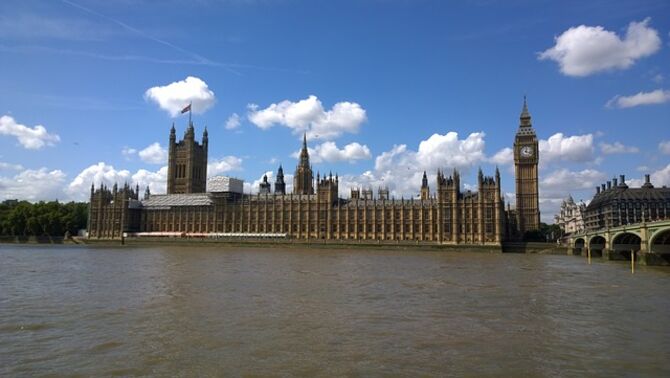Theresa May to ask MPs for snap general election
UK prime minister Theresa May will ask parliament tomorrow to approve a motion calling for a general election on 8 June, three years ahead of schedule.

Political reaction to May's election call
Labour party leader, Jeremy Corbyn, greeted the decision favourably, suggesting it offers a valuable opportunity for people to express their views on the best direction for the UK; a view echoed by leaders of other parties and business representatives.“I welcome the prime minister’s decision to give the British people the chance to vote for a government that will put the interests of the majority first,” Mr Corbyn said. “Labour will be offering the country an effective alternative to a government that has failed to rebuild the economy, delivered falling living standards and damaging cuts to our schools and NHS.”Liberal Democrat leader, Tim Farron, also welcomed May’s move, saying: “If you want to avoid a disastrous hard Brexit. If you want to keep Britain in the single market. If you want a Britain that is open, tolerant and united, this is your chance.”The Green Party’s joint leader Caroline Lucas commented: "Britain is at a crossroads – and today’s announcement means that people are rightly given a say over the direction this country is going to take.”Business reaction to May’s election call
As the news broke, the FTSE index dropped 100 points while sterling soared against the dollar. Peter Ashton, managing director of Eiger FX, believes that the uncertainty reflected in the moves will be short-lived: “The markets were quick to price in greater economic and policy stability under what they expect will be a significant majority given the weakness of the oppositionHowever, Carolyn Fairbairn, director-general of the business organisation the CBI, said that the election must not distract from the current priorities of improving UK productivity and negotiating the terms of Brexit.“With a snap general election now called, businesses will be looking to each political party to set out their plans to support economic stability and prosperity over the next parliament in a way that is fair and sustainable for communities across the UK," said Ms Fairbairn.“Distraction from the urgent priorities of seeking the best EU deal and improving UK productivity must be kept to a minimum. Firms will want to hear commitments from all parties to work in close partnership with business and back a new Industrial Strategy to make the UK economy the most competitive in the world by 2030.“It is essential to get the UK’s foundations right, from building a skills base for the next generation, to investing in infrastructure, energy and delivering a pro-enterprise tax environment.“As EU negotiations now get underway, firms are clear about the serious risks of failing to secure a deal and falling into World Trade Organisation rules. It is vital that negotiators secure some early wins and all parties should commit to working to ensure businesses can continue to trade easily with our EU neighbours, while seeking new opportunities around the world.“Whoever forms the next government, they should seek to build a partnership between business and government that is the best in the world, based on trust and shared interest.”Related reading:
Learning and development top HR priority for next 12 months
Plunge in number of EU citizens seeking work in Britain
Calls for innovation to be at heart of industrial strategy
The Institute of Directors’ response also underlined the importance of the election campaign for proper debate around Britain’s departure from the EU and the country’s long-term future.Stephen Martin, the business leaders’ body director general, said: “Businesses are having to get used to being buffeted by the changing winds of politics at the moment, and will just have to endure yet another campaign. This must be used as a chance to properly debate what leaving the EU means for the long-term future of the UK, including how we continue to bring in the skills employers need.“While Brexit will inevitably dominate the campaign, there are also much wider questions that need to be addressed on the changing nature of business and work, automation and our ageing society. These can’t be ignored in the run up to June 8, and the business voice must be heard in this crucial discussion.”With consultation now closed on a key plank of May’s Brexit vision, the Industrial Strategy, Chris Wood, CEO of Develop Training Limited (DTL), a provider of compliance, technical and safety training in the utility and construction sectors, hoped the campaigns would continue the focus on the skills agenda.“Whatever the outcome of the forthcoming election, it is hoped that the new government will continue to build on the current agenda of promoting training in all forms, in particular apprenticeships, and the ongoing need to attract workers into the UK’s vital utility industries, whether they are young or old, male or female.”
For related news and features, visit our Enterprise section.
Access hundreds of global services and suppliers in our Online Directory
Get access to our free Global Mobility Toolkit

©2025 Re:locate magazine, published by Profile Locations, Spray Hill, Hastings Road, Lamberhurst, Kent TN3 8JB. All rights reserved. This publication (or any part thereof) may not be reproduced in any form without the prior written permission of Profile Locations. Profile Locations accepts no liability for the accuracy of the contents or any opinions expressed herein.






































